19 corporations that use blockchain technology and distributed registries
- Transfer
Today, everyone says that in the field of blockchain there are not enough successfully implemented projects, real cases that could be an inspiring example for companies embarking on the path of digital transformation. I want to share with you a translation of an article about such cases. Text published by the American analytical company CB Insights . She digs in the field of breakthrough digital technologies and knows everything about startups that are changing the world for the better (I highly recommend that you follow the publications of her specialists).

Let's see which of the large corporations, non-profit organizations and governments uses the blockchain to solve their problems, and in the comments we discuss which of the presented cases should be used in Russian realities.
Many corporations still work with piles of paper and even handwritten documents, transmitting them to colleagues by fax, as well as with many databases scattered between different countries and continents. Such complex designs no longer suit the business, and corporate giants begin to seek salvation in decentralized systems.
(By the way, the LANIT group has just created a competence center for the formation of new business models based on blockchain technologies, distributed registries and digital platforms - DTG(Digital Transformation Group), which I am the leader of.)
So, here is the translation of cases that I promised you.
 Microsoft has expressed support for the ID2020 project to create a single global identity document that could be used around the world. The main mission of the project is to help people without documents, which number more than one billion.
Microsoft has expressed support for the ID2020 project to create a single global identity document that could be used around the world. The main mission of the project is to help people without documents, which number more than one billion.
To do this, the software giant, together with Accenture and Avanade, is developing a prototype digital blockchain-based system using Microsoft Azure.
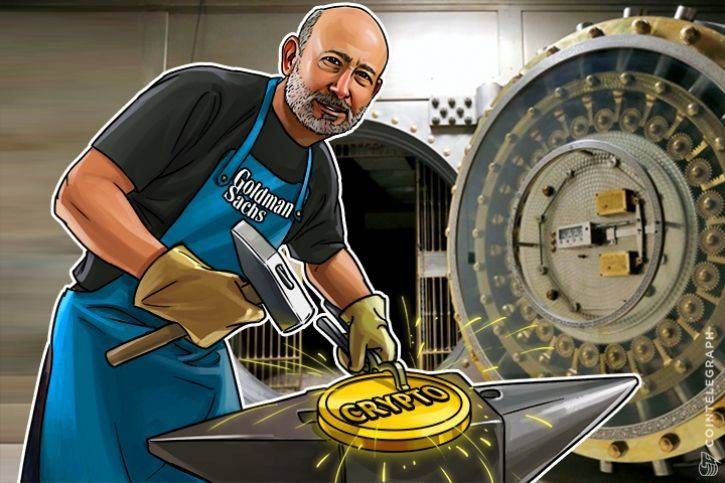 According to rumors, Goldman Sachs is creating a trading platform for cryptocurrency trading in New York, which will begin its work in late June 2018, and maybe earlier. The intrigue persists, since at the end of January there were publications that Goldman Sachs already owns a similar platform, since it was an investor in a startup to create it in 2015. (At the time of the transfer, an article was published under the heading "Goldman Sachs does not create a platform for cryptocurrency, because they already have one . " )
According to rumors, Goldman Sachs is creating a trading platform for cryptocurrency trading in New York, which will begin its work in late June 2018, and maybe earlier. The intrigue persists, since at the end of January there were publications that Goldman Sachs already owns a similar platform, since it was an investor in a startup to create it in 2015. (At the time of the transfer, an article was published under the heading "Goldman Sachs does not create a platform for cryptocurrency, because they already have one . " )
The bank's management also noted that it is considering the issue of accounting for crypto assets. Lloyd Blankfein, CEO of the company, mentioned this on his Twitter account: “Still thinking about # Bitcoin. So far I have not come to any conclusions - neither for nor against. I remember that once people were already very skeptical - when gold coins began to be replaced with paper money. "
 With the help of Blockapps startup and ConsenSys, one of the world's largest mining companies, BHP Billiton, will use the blockchain to track the movement of samples of mined rocks and liquids, as well as to increase the reliability of real-time data.
With the help of Blockapps startup and ConsenSys, one of the world's largest mining companies, BHP Billiton, will use the blockchain to track the movement of samples of mined rocks and liquids, as well as to increase the reliability of real-time data.
BHP uses contractors in the mining process, concludes contracts with geologists and courier companies on different continents to collect samples and conduct analysis.
BHP will insist that their contractors use the Ethereum-based system and host internal documents on the IPFS system . This is a peer-to-peer distributed file system, often used when implementing a blockchain.
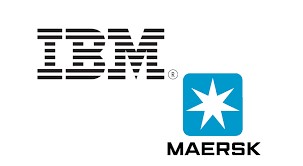 An unnamed project, based in New York, will help shippers, ports, customs, banks and other interested parties in global supply chains and replace paper documentation with tamper-proof digital reports.
An unnamed project, based in New York, will help shippers, ports, customs, banks and other interested parties in global supply chains and replace paper documentation with tamper-proof digital reports.
Global suppliers are seriously affected by the abundance of paper documents. In the case of perishable goods, loss or delay in the way of documentation can lead to serious losses. The integration of the blockchain can have a significant impact on the efficiency of world trade, given that marine logistics companies transport 90% of the goods on the world market.
In September, Maersk also entered into a partnership agreement with GuardTime blockchain startup.who launched the offshore insurance blockchain platform together with Microsoft and EY with the participation of ACORD, Willis Towers Watson, MS Amlin and XL Catlin.
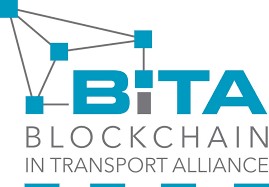 Trucking companies UPS, FedEx, BNSF Railway (a subsidiary of Berkshire Hathaway) and Schneider Trucking are just some of the more than 200 high-profile names in the BITA (Blockchain in Transport Alliance), which uses blockchain technology in the field of freight transportation.
Trucking companies UPS, FedEx, BNSF Railway (a subsidiary of Berkshire Hathaway) and Schneider Trucking are just some of the more than 200 high-profile names in the BITA (Blockchain in Transport Alliance), which uses blockchain technology in the field of freight transportation.
The goal of the community is to unite companies involved in freight transportation and develop common standards in the process of testing blockchain applications.
 Pemex, the Mexican state-owned oil and gas and petrochemical company, will support Petroteq, an oil and gas company, in developing specialized industry-specific supply chain management (SCM) software.
Pemex, the Mexican state-owned oil and gas and petrochemical company, will support Petroteq, an oil and gas company, in developing specialized industry-specific supply chain management (SCM) software.
We know Pemex as the first oil company to accept cryptocurrency as payment. The company employs 100,000 people and has an extensive network of suppliers and business contracts.
The Petroteq project, the blockchain-based PetroBLOQ corporate platform, will allow oil and gas companies to conduct global operations.
 Swiss bank UBS will lead a pilot project whose goal is to automate the regulatory requirements of the EU directive governing exchange operations MiFID II / MiFIR, which will come into force in 2018.
Swiss bank UBS will lead a pilot project whose goal is to automate the regulatory requirements of the EU directive governing exchange operations MiFID II / MiFIR, which will come into force in 2018.
Using the system created on the basis of the Ethereum blockchain platform, participating banks will be able to anonymously exchange Legal Entity Identifier data.
Participating banks will be able to verify their data on legal entities and adopt new rules faster.
Banks also experimented with the blockchain, considering it as a way to optimize the back office, which is estimated to free up to $ 20 billion.
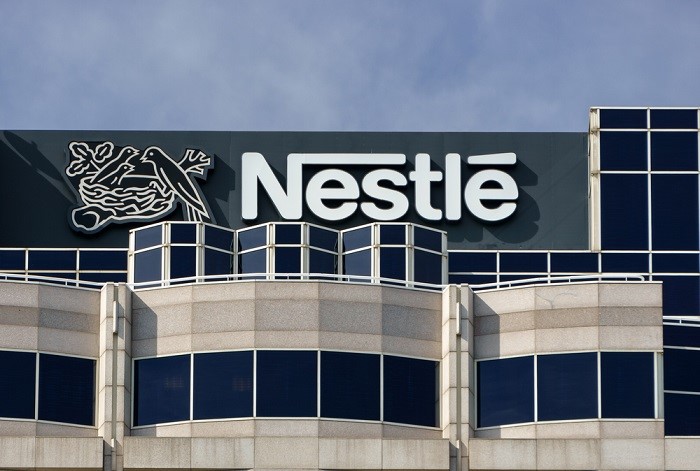 In August 2017, Walmart, Kroger, Nestle, and Unilever signed an agreement with IBM to use blockchain to improve food safety by improving supply chain tracking.
In August 2017, Walmart, Kroger, Nestle, and Unilever signed an agreement with IBM to use blockchain to improve food safety by improving supply chain tracking.
Walmart has been working with IBM since 2016, and through this partnership, it has been possible to reduce the tracking time for mango shipments from 7 days to 2.2 seconds.
Thanks to the joining of 9 more large food suppliers, in this area (where such cooperation is a rarity), the level of security can significantly increase.
Howard Popula, head of food security at Kroger, said in an interview with Reuters: “This is an opportunity for us to express a common idea and show the world that food safety will not be the basis for competition.”
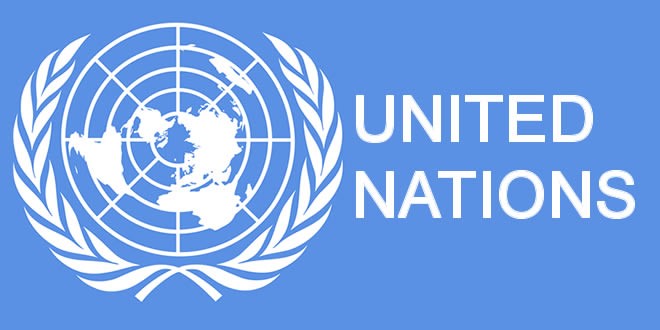 The United Nations Climate Change Coalition is exploring whether distributed ledger technologies can improve the outcomes of climate change initiatives. The Coalition is currently seeking to establish a transparent system for collecting climate data, carbon emissions and sales data.
The United Nations Climate Change Coalition is exploring whether distributed ledger technologies can improve the outcomes of climate change initiatives. The Coalition is currently seeking to establish a transparent system for collecting climate data, carbon emissions and sales data.
Distributed registries will help separate climate data from political issues. Last year, many US scientists were worried that federal research libraries might be closed and their databases altered or deleted with the advent of the new head of the EPA (US Environmental Protection Agency).
The UN has already developed a project based on the Ethereum blockchain platform to send humanitarian aid to Syrian refugees. The World Food Program used the blockchain to control Ethereum-based food vouchers that could be marketed.
 The British company Electron recently received an investment from TEPCO, Japan's largest energy company. Currently, the energy industry uses disparate infrastructure for calculations and data logging. Electron hopes to encourage the industry to transfer these features to a common blockchain platform.
The British company Electron recently received an investment from TEPCO, Japan's largest energy company. Currently, the energy industry uses disparate infrastructure for calculations and data logging. Electron hopes to encourage the industry to transfer these features to a common blockchain platform.
Electron is ready to become a data operator, from which energy providers can receive information about assets and keep track of transactional changes. Its services can also be applied to utilities such as telecommunications and water.
 The Illinois Department of Financial and Professional Regulation (IDFPR), which issues medical licenses, is launching a project with Hashed Health to streamline the licensing process.
The Illinois Department of Financial and Professional Regulation (IDFPR), which issues medical licenses, is launching a project with Hashed Health to streamline the licensing process.
The goal of the project is to digitize medical credentials and use smart contracts to automate the licensing workflow in Illinois.
 The Brazilian Ministry of Planning, Budget and Management is testing the independent uPort identity blockchain application developed by ConsenSys.
The Brazilian Ministry of Planning, Budget and Management is testing the independent uPort identity blockchain application developed by ConsenSys.
The platform created on the basis of Ethereum allows users to edit their own profiles, and the Ministry will verify the legitimacy of uploaded personal documents.
 Evernym , a Salt Lake City company, received a $ 794,000 grant from the Department of Security as part of its small business incentive program and is developing a blockchain system for newborns for the Illinois Government.
Evernym , a Salt Lake City company, received a $ 794,000 grant from the Department of Security as part of its small business incentive program and is developing a blockchain system for newborns for the Illinois Government.
* * * * * * * * *
At the moment, even the world's giants are just starting to work on blockchain projects. Many cases are just a testing of ideas and the first step towards the formation of new business models. It is most interesting to observe the emergence of operators of digital ecosystems (see Case No. 4), which are able to increase the effectiveness of interaction among participants in a large distributed business process. Blockchain is becoming the technological foundation of such ecosystems.
At the same time, we see that the blockchain can be used not only for financial organizations. Logistics, retail chains, healthcare, oil production and energy ... I think that in a year the list of industries will expand significantly.
The opinion of Habr readers is interesting - do you think that Russian companies will soon show interest in solving such problems with the help of blockchain and distributed registries? Which of the described cases, in your opinion, are applicable to Russian realities? Are our companies ready to understand the philosophy of sharing the benefits of working in ecosystems?
PS By the way, why are 19 corporations mentioned in the title of the article? We ourselves were surprised, but still decided not to change the name. Maybe you have an answer?

Let's see which of the large corporations, non-profit organizations and governments uses the blockchain to solve their problems, and in the comments we discuss which of the presented cases should be used in Russian realities.
Many corporations still work with piles of paper and even handwritten documents, transmitting them to colleagues by fax, as well as with many databases scattered between different countries and continents. Such complex designs no longer suit the business, and corporate giants begin to seek salvation in decentralized systems.
(By the way, the LANIT group has just created a competence center for the formation of new business models based on blockchain technologies, distributed registries and digital platforms - DTG(Digital Transformation Group), which I am the leader of.)
So, here is the translation of cases that I promised you.
1. Microsoft is a partner of the ID2020 project
 Microsoft has expressed support for the ID2020 project to create a single global identity document that could be used around the world. The main mission of the project is to help people without documents, which number more than one billion.
Microsoft has expressed support for the ID2020 project to create a single global identity document that could be used around the world. The main mission of the project is to help people without documents, which number more than one billion. To do this, the software giant, together with Accenture and Avanade, is developing a prototype digital blockchain-based system using Microsoft Azure.
2. Goldman Sachs creates a cryptocurrency trading platform
 According to rumors, Goldman Sachs is creating a trading platform for cryptocurrency trading in New York, which will begin its work in late June 2018, and maybe earlier. The intrigue persists, since at the end of January there were publications that Goldman Sachs already owns a similar platform, since it was an investor in a startup to create it in 2015. (At the time of the transfer, an article was published under the heading "Goldman Sachs does not create a platform for cryptocurrency, because they already have one . " )
According to rumors, Goldman Sachs is creating a trading platform for cryptocurrency trading in New York, which will begin its work in late June 2018, and maybe earlier. The intrigue persists, since at the end of January there were publications that Goldman Sachs already owns a similar platform, since it was an investor in a startup to create it in 2015. (At the time of the transfer, an article was published under the heading "Goldman Sachs does not create a platform for cryptocurrency, because they already have one . " )The bank's management also noted that it is considering the issue of accounting for crypto assets. Lloyd Blankfein, CEO of the company, mentioned this on his Twitter account: “Still thinking about # Bitcoin. So far I have not come to any conclusions - neither for nor against. I remember that once people were already very skeptical - when gold coins began to be replaced with paper money. "
3. Mining giant BHP Billiton introduces blockchain for managing contract work and analytics
 With the help of Blockapps startup and ConsenSys, one of the world's largest mining companies, BHP Billiton, will use the blockchain to track the movement of samples of mined rocks and liquids, as well as to increase the reliability of real-time data.
With the help of Blockapps startup and ConsenSys, one of the world's largest mining companies, BHP Billiton, will use the blockchain to track the movement of samples of mined rocks and liquids, as well as to increase the reliability of real-time data. BHP uses contractors in the mining process, concludes contracts with geologists and courier companies on different continents to collect samples and conduct analysis.
BHP will insist that their contractors use the Ethereum-based system and host internal documents on the IPFS system . This is a peer-to-peer distributed file system, often used when implementing a blockchain.
4. Maersk teams up with IBM for a joint project
 An unnamed project, based in New York, will help shippers, ports, customs, banks and other interested parties in global supply chains and replace paper documentation with tamper-proof digital reports.
An unnamed project, based in New York, will help shippers, ports, customs, banks and other interested parties in global supply chains and replace paper documentation with tamper-proof digital reports. Global suppliers are seriously affected by the abundance of paper documents. In the case of perishable goods, loss or delay in the way of documentation can lead to serious losses. The integration of the blockchain can have a significant impact on the efficiency of world trade, given that marine logistics companies transport 90% of the goods on the world market.
In September, Maersk also entered into a partnership agreement with GuardTime blockchain startup.who launched the offshore insurance blockchain platform together with Microsoft and EY with the participation of ACORD, Willis Towers Watson, MS Amlin and XL Catlin.
5. UPS, FedEx, and BNSF Railway Join BITA
 Trucking companies UPS, FedEx, BNSF Railway (a subsidiary of Berkshire Hathaway) and Schneider Trucking are just some of the more than 200 high-profile names in the BITA (Blockchain in Transport Alliance), which uses blockchain technology in the field of freight transportation.
Trucking companies UPS, FedEx, BNSF Railway (a subsidiary of Berkshire Hathaway) and Schneider Trucking are just some of the more than 200 high-profile names in the BITA (Blockchain in Transport Alliance), which uses blockchain technology in the field of freight transportation. The goal of the community is to unite companies involved in freight transportation and develop common standards in the process of testing blockchain applications.
6. Petroteq creates a distributed registry for Pemex (for reference, this is the first oil company to accept cryptocurrency)
 Pemex, the Mexican state-owned oil and gas and petrochemical company, will support Petroteq, an oil and gas company, in developing specialized industry-specific supply chain management (SCM) software.
Pemex, the Mexican state-owned oil and gas and petrochemical company, will support Petroteq, an oil and gas company, in developing specialized industry-specific supply chain management (SCM) software. We know Pemex as the first oil company to accept cryptocurrency as payment. The company employs 100,000 people and has an extensive network of suppliers and business contracts.
The Petroteq project, the blockchain-based PetroBLOQ corporate platform, will allow oil and gas companies to conduct global operations.
7. UBS, Barclays, Credit Suisse are testing the compliance platform on Ethereum
 Swiss bank UBS will lead a pilot project whose goal is to automate the regulatory requirements of the EU directive governing exchange operations MiFID II / MiFIR, which will come into force in 2018.
Swiss bank UBS will lead a pilot project whose goal is to automate the regulatory requirements of the EU directive governing exchange operations MiFID II / MiFIR, which will come into force in 2018. Using the system created on the basis of the Ethereum blockchain platform, participating banks will be able to anonymously exchange Legal Entity Identifier data.
Participating banks will be able to verify their data on legal entities and adopt new rules faster.
Banks also experimented with the blockchain, considering it as a way to optimize the back office, which is estimated to free up to $ 20 billion.
8. Manufacturers and sellers of products Walmart, Tyson, Unilever, Nestle, Kroger, Dole, McCormick and others are joining together for a pilot blockchain project
 In August 2017, Walmart, Kroger, Nestle, and Unilever signed an agreement with IBM to use blockchain to improve food safety by improving supply chain tracking.
In August 2017, Walmart, Kroger, Nestle, and Unilever signed an agreement with IBM to use blockchain to improve food safety by improving supply chain tracking. Walmart has been working with IBM since 2016, and through this partnership, it has been possible to reduce the tracking time for mango shipments from 7 days to 2.2 seconds.
Thanks to the joining of 9 more large food suppliers, in this area (where such cooperation is a rarity), the level of security can significantly increase.
Howard Popula, head of food security at Kroger, said in an interview with Reuters: “This is an opportunity for us to express a common idea and show the world that food safety will not be the basis for competition.”
9. The UN is exploring the possibilities of DLT (Distributed Ledger Technology) and the blockchain for organizing humanitarian assistance and climate research.
 The United Nations Climate Change Coalition is exploring whether distributed ledger technologies can improve the outcomes of climate change initiatives. The Coalition is currently seeking to establish a transparent system for collecting climate data, carbon emissions and sales data.
The United Nations Climate Change Coalition is exploring whether distributed ledger technologies can improve the outcomes of climate change initiatives. The Coalition is currently seeking to establish a transparent system for collecting climate data, carbon emissions and sales data. Distributed registries will help separate climate data from political issues. Last year, many US scientists were worried that federal research libraries might be closed and their databases altered or deleted with the advent of the new head of the EPA (US Environmental Protection Agency).
The UN has already developed a project based on the Ethereum blockchain platform to send humanitarian aid to Syrian refugees. The World Food Program used the blockchain to control Ethereum-based food vouchers that could be marketed.
10. TEPCO partnered with Electron
 The British company Electron recently received an investment from TEPCO, Japan's largest energy company. Currently, the energy industry uses disparate infrastructure for calculations and data logging. Electron hopes to encourage the industry to transfer these features to a common blockchain platform.
The British company Electron recently received an investment from TEPCO, Japan's largest energy company. Currently, the energy industry uses disparate infrastructure for calculations and data logging. Electron hopes to encourage the industry to transfer these features to a common blockchain platform. Electron is ready to become a data operator, from which energy providers can receive information about assets and keep track of transactional changes. Its services can also be applied to utilities such as telecommunications and water.
11. Illinois Government Tests Distributed Licensing Registers
 The Illinois Department of Financial and Professional Regulation (IDFPR), which issues medical licenses, is launching a project with Hashed Health to streamline the licensing process.
The Illinois Department of Financial and Professional Regulation (IDFPR), which issues medical licenses, is launching a project with Hashed Health to streamline the licensing process. The goal of the project is to digitize medical credentials and use smart contracts to automate the licensing workflow in Illinois.
12. Brazilian government is experimenting with uPort
 The Brazilian Ministry of Planning, Budget and Management is testing the independent uPort identity blockchain application developed by ConsenSys.
The Brazilian Ministry of Planning, Budget and Management is testing the independent uPort identity blockchain application developed by ConsenSys. The platform created on the basis of Ethereum allows users to edit their own profiles, and the Ministry will verify the legitimacy of uploaded personal documents.
13. Evernym works with the Illinois Government Security Department
 Evernym , a Salt Lake City company, received a $ 794,000 grant from the Department of Security as part of its small business incentive program and is developing a blockchain system for newborns for the Illinois Government.
Evernym , a Salt Lake City company, received a $ 794,000 grant from the Department of Security as part of its small business incentive program and is developing a blockchain system for newborns for the Illinois Government. * * * * * * * * *
At the moment, even the world's giants are just starting to work on blockchain projects. Many cases are just a testing of ideas and the first step towards the formation of new business models. It is most interesting to observe the emergence of operators of digital ecosystems (see Case No. 4), which are able to increase the effectiveness of interaction among participants in a large distributed business process. Blockchain is becoming the technological foundation of such ecosystems.
At the same time, we see that the blockchain can be used not only for financial organizations. Logistics, retail chains, healthcare, oil production and energy ... I think that in a year the list of industries will expand significantly.
The opinion of Habr readers is interesting - do you think that Russian companies will soon show interest in solving such problems with the help of blockchain and distributed registries? Which of the described cases, in your opinion, are applicable to Russian realities? Are our companies ready to understand the philosophy of sharing the benefits of working in ecosystems?
PS By the way, why are 19 corporations mentioned in the title of the article? We ourselves were surprised, but still decided not to change the name. Maybe you have an answer?
We are always looking for strong developers and architects.
For example, here are two jobs:
If you feel the strength and desire to join the DTG team, but have not found a suitable vacancy, write to dtg@dtg.technology .
If you feel the strength and desire to join the DTG team, but have not found a suitable vacancy, write to dtg@dtg.technology .
